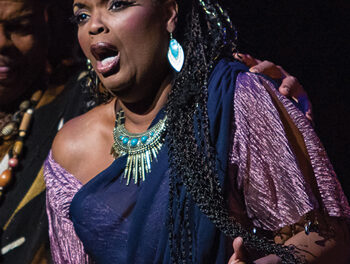We’ve been privileged to watch a lot of fine young musicians grow up in the Triangle. Violinist James Dargan is one of them. We met when his father and I slipped over to an ice-cream parlor on Hillsborough Street, years ago, to talk about music criticism. James tagged along, and for reasons that elude me at this juncture I taught him how to make a bow tie out of a dollar bill – which he happily took away when he left. Over the years, we’ve watched him grow as a person and as an artist, playing first in ensembles of the Duke University String School, studying with its director, Dorothy Kitchen, and then gradually starting to appear in various solo roles here and there. It seems like only yesterday, but as I write this, he is preparing to leave for Boston University, where he will pursue his education – and continue to study violin with Nicholas Kitchen, of the New England Conservatory. A recital given on the evening of August 25 in the auditorium of The Forest at Duke Retirement Center seems to have marked his temporary farewell to the Triangle, but he promises to return.
The well-attended program was generous, almost to a fault, and wound up being longer than we’d anticipated, based on CVNC‘s calendar listing. Dargan plays a violin made by Geoffrey Ovington (http://www.ovingtonviolins.com/ [inactive 9/05]), provided by Chevron-Texaco after he won [a] competition in Michigan last spring. He began with Bach’s Second Partita in D Minor, S.1004. There were, initially, some minor jitters, but by the end of the Sarabande the performance leveled out and thereafter gave considerable pleasure. Dargan is a fine technician, he displayed a firm command of the work’s structure, and he managed to elicit more than a few gasps of pleasure from the crowd. For Brahms’ Sonata No. 2, in A, Op. 100, and the remaining works on the program, he was accompanied by Joseph W. Kitchen, which means that Dargan effectively covered all the necessary bases in the recital, which (perhaps unintentionally) paid tribute to the Kitchens while concurrently being dedicated to the memory of the violinist’s grandmothers. The Brahms glowed, and Dargan exuded grace and dignity in its slow movement. The piano, kept on its short stick, sounded a bit clunky (no fault of the player, of course), and the room’s air conditioning is at times noisily intrusive – although no one present can have wanted it turned off! The formal part of the program ended with a truly handsome reading of Saint-Saëns’ Third Concerto, given (of course) in a reduction for violin and piano. It’s the best known of the French master’s works in this form, but it’s not often heard in concert or recital, so it was a treat to encounter it again. The encore was Milstein’s arrangement of Chopin’s Nocturne in C-Sharp Minor, which both players managed to milk for all it is worth and then some. Thus were presented four works with distinctive musical profiles. Each was nicely detailed, and the sum of the diverse parts proved impressive on all counts.
We wish Dargan well as he moves to Massachusetts and hope that his transformation to being a “proper Bostonian” won’t impede his generally relaxed demeanor and ingratiating podium manner.
For the record, Dargan’s soon-to-be teacher Nicholas Kitchen will return to St. Stephen’s Episcopal Church, in Durham, to play the same Bach partita, together with the other two and the three sonatas that, collectively form S.1001-6, in January. For this writer, the concert will round out a circle, of sorts, for it was there, long ago, that we first heard Kitchen play, when he was a good deal younger than Dargan is now!











